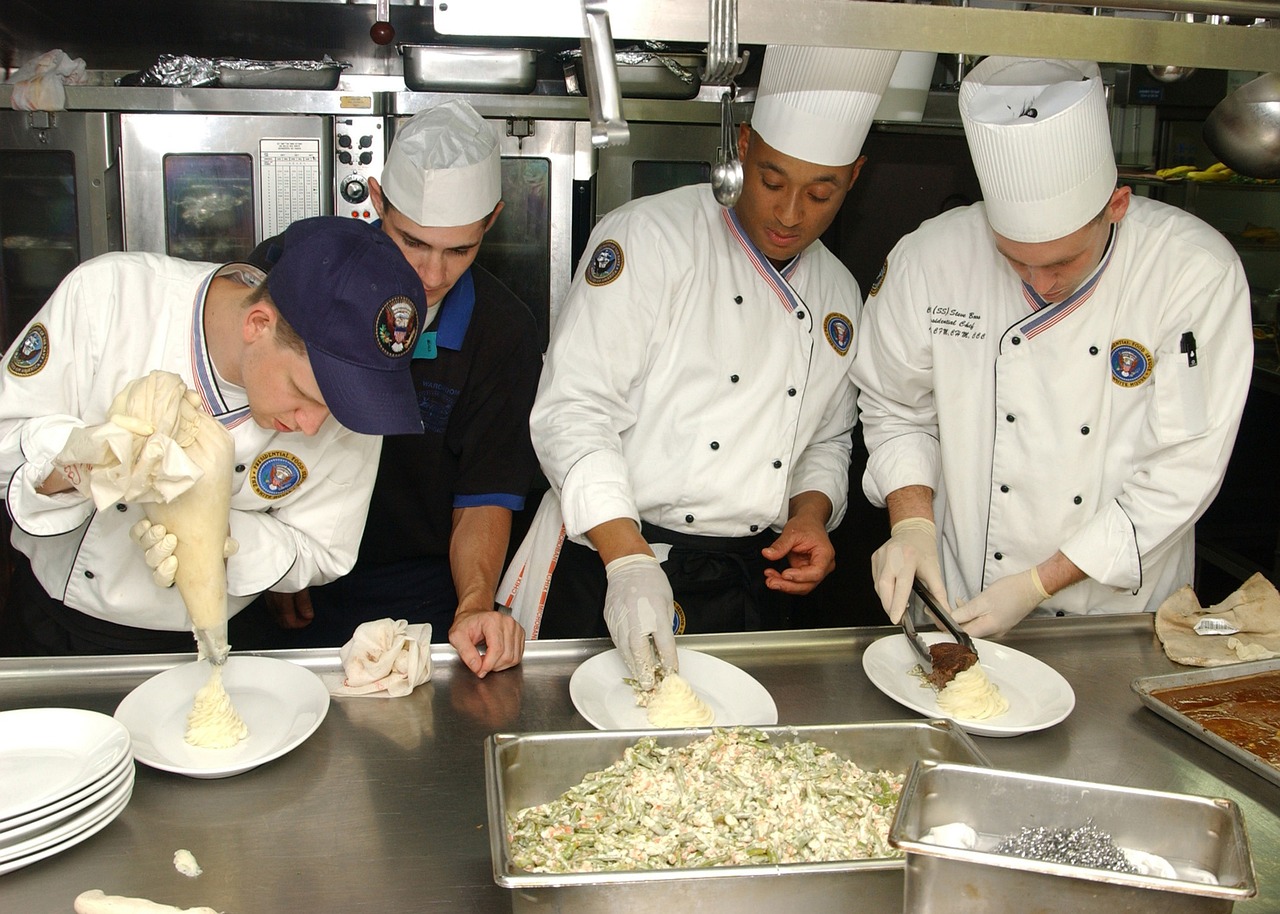How to Start a Restaurant with No Money: Turning Culinary Dreams into Reality

The Allure of Starting a Restaurant
The Alluring World of Restaurants
Restaurants have a unique charm that draws aspiring entrepreneurs. The joy of creating memorable dining experiences and sharing your culinary passion with others is a dream for many.
The Misconception About Capital
One common misconception is that starting a restaurant requires a vast amount of capital. While having money certainly helps, it’s not the only path to restaurant ownership.
When you’re determined and resourceful, there are ways to turn your culinary dreams into reality without the need for substantial capital.
Finding Your Unique Concept
The Power of a Unique Concept
One of the keys to success in the restaurant industry is a unique concept. Your restaurant should stand out in a crowded culinary landscape. Think about what makes your eatery special and different from others.
Your unique concept will be the foundation of your restaurant’s identity and will help you attract customers who are looking for something distinctive.
Examples of Low-Cost Restaurant Concepts
Let’s look at some real-world examples of successful restaurants that started with minimal capital by leveraging innovative and low-cost concepts:
1. Food Trucks and Pop-Ups
Food trucks and pop-up restaurants have gained popularity due to their lower overhead costs. These mobile eateries can introduce your culinary creations to a wide audience without the need for a permanent location.
2. Fusion Cuisine
Creating a fusion of cuisines can be a unique selling point for your restaurant. Combining flavors from different cultures can be cost-effective, as some ingredients are common across cuisines.
3. Small, Specialized Menus
A small, well-curated menu not only reduces food costs but also allows you to focus on perfecting a few signature dishes. Customers often appreciate simplicity and quality over an extensive but average menu.
Crafting a Solid Business Plan
The Foundation of a Business Plan
A well-crafted business plan is crucial for any restaurant venture. It’s your roadmap to success, outlining your goals, strategies, and financial projections. It helps you stay organized and accountable.
Tips for a Budget-Friendly Business Plan
Creating a business plan doesn’t have to be expensive. Here are some tips for developing a business plan on a tight budget:
1. Online Templates
Numerous online resources offer free or low-cost business plan templates. These templates guide you through the process and ensure you don’t miss essential details.
2. Industry Associations
Check if there are industry associations or business development centers in your area. They often provide free or low-cost assistance in creating business plans.
3. DIY Approach
Consider creating the plan yourself if you have the time and inclination. There are plenty of books and online articles that can guide you through the process.
4. Lean on Your Network
If you have friends or acquaintances with business or financial expertise, don’t hesitate to ask for their guidance. They might offer valuable insights and advice.
Your business plan serves as a roadmap for your restaurant’s success, so invest time and effort in crafting it thoughtfully.
Leveraging Your Personal Skills and Network
Unleashing Your Skills
Identify your strengths and skills that can be assets in the restaurant business. Personal skills can compensate for financial limitations. For instance:
Culinary Skills
If you’re a talented chef or cook, your culinary skills can be the heart and soul of your restaurant. Prepare dishes that showcase your expertise and passion.
Management Skills
Strong organizational and management skills can help you run a tight ship even on a limited budget. Efficient operations are key to financial sustainability.
Marketing Skills
If you’re skilled in marketing and promotion, you can leverage these abilities to create buzz around your restaurant without excessive spending.
Building a Supportive Network
Networking can help you find collaborators, supporters, and even potential investors who share your passion for your restaurant concept.
Join Culinary Associations
Consider becoming a member of culinary associations or forums where you can connect with like-minded individuals. These connections can provide valuable support and advice.
Attend Industry Events
Attend industry events and food festivals to meet potential partners, suppliers, and investors. Networking at these events can open doors to opportunities you might not find elsewhere.
Engage on Social Media
Social media platforms, especially those focused on food and restaurants, can be great places to connect with fellow food enthusiasts and professionals.
Building a strong network can be as valuable as having ample financial resources, as it can provide you with the support and expertise needed to succeed.
Location Matters
The Importance of Location
Choosing the right location is paramount to a restaurant’s success. Your restaurant’s location affects foot traffic, visibility, and overall accessibility.
High Foot Traffic Areas
Consider areas with high foot traffic, such as downtown districts, shopping centers, or near popular tourist destinations. These areas can attract more potential customers.
Affordable Neighborhoods
Look for neighborhoods with lower rent costs but still offer a reasonable level of visibility and accessibility. Some up-and-coming neighborhoods may be more affordable.
Negotiating Lease Terms
Negotiating favorable lease terms is an art. It involves communication, research, and a willingness to compromise.
Do Your Research
Before negotiating, research comparable rents in the area. Knowledge of the market can give you an advantage during negotiations.
Be Prepared to Compromise
Landlords may be more flexible if they see potential in your concept. Be prepared to negotiate on aspects like rent increases and lease length.
Creative Funding Solutions
Funding Your Dream
While you’re determined to start a restaurant with minimal capital, some funding will still be necessary. Here are creative funding solutions to explore:
1. Bootstrapping
Bootstrapping means using your personal savings and revenue generated by the business to fund its growth. While it requires patience, it allows you to maintain control.
2. Crowdfunding
Online crowdfunding platforms can help you raise money from a community of supporters who believe in your restaurant concept. Offer unique rewards to backers to incentivize contributions.
3. Small Business Grants
Research grants and financial assistance programs for small businesses, especially those in the culinary industry. Some grants are designed to support aspiring restaurateurs.
4. Investors and Partnerships
Consider seeking investors or partners who share your vision. Some individuals or organizations may be willing to invest in your restaurant in exchange for a share of the profits.
Navigating Licenses and Permits
The Regulatory Landscape
Starting a restaurant involves dealing with various licenses and permits. While this can seem overwhelming, understanding the process is crucial.
Health Permits
Ensure your kitchen and dining areas meet health department standards. Regular inspections will be part of the process.
Alcohol Licenses
If you plan to serve alcohol, you’ll need the appropriate licenses, which can be costly. Explore whether a BYOB (Bring Your Own Bottle) policy is feasible.
Business Licenses
Obtain the necessary business licenses and permits from your local government. These can vary by location and the type of establishment you’re opening.
DIY or Professional Help?
Decide whether to navigate the permitting process yourself or hire a professional, like a lawyer or consultant, to assist you. Professionals can help streamline the process but come with associated costs.
Minimizing Initial Costs
Thrifty Start-Up Strategies
Keeping initial costs to a minimum is essential when starting a restaurant with little money. Here are strategies to achieve that:
1. Secondhand Equipment
Consider buying secondhand kitchen equipment. You can find good deals on appliances, tables, and chairs from restaurant closures or auctions.
2. Minimalistic Decor
Opt for a minimalist decor theme. Simple yet stylish decor can create an inviting atmosphere without breaking the bank.
3. DIY Renovations
If the space requires renovations, consider doing some of the work yourself. However, ensure it meets safety and health standards.
4. Lean Staffing
Initially, keep your staff lean. Multitasking and efficient scheduling can reduce labor costs.
Building Buzz on a Budget
Effective Marketing Strategies
Marketing doesn’t have to be expensive. Here are cost-effective ways to create buzz about your restaurant:
1. Social Media
Leverage social media platforms to showcase your culinary creations. Share high-quality images and engage with your audience to build a following.
2. Local Partnerships
Partner with local businesses or food influencers for cross-promotions. Collaborative marketing efforts can expand your reach.
3. Guerrilla Marketing
Get creative with guerrilla marketing tactics. Hand out free samples in high-traffic areas or host attention-grabbing events.
4. Email Marketing
Collect customer email addresses and use email marketing to share updates, promotions, and special events.
Embrace the Soft Opening
Testing the Waters
Consider a soft opening before the grand launch. A soft opening allows you to fine-tune your operations, receive feedback, and make necessary adjustments.
Invite Friends and Family
Invite friends and family to dine at your restaurant during the soft opening. They can provide valuable feedback and help spread the word.
Offer Incentives
During the soft opening, offer discounts or special promotions to entice locals to visit and provide feedback.
Persevere and Adapt
The Path to Success
Starting a restaurant with minimal money requires determination and adaptability. There will be challenges, but with a strong vision and resilience, you can overcome them.
Monitor Finances
Keep a close eye on your finances. Regularly review your budget and adapt to changing circumstances.
Customer Feedback
Listen to customer feedback and be willing to make changes based on their preferences. A restaurant’s success often hinges on customer satisfaction.
Stay Committed
Remember why you started this journey. Passion and commitment can carry you through the tough times.
Conclusion
Turning Dreams into Reality
Starting a restaurant with no money is not just a dream; it’s an achievable reality. By leveraging your culinary passion, unique concept, and resourcefulness, you can build a successful restaurant business. It won’t be easy, but the satisfaction of sharing your love for food with the world makes it all worthwhile.
FAQs
1. Can I really start a restaurant with no money?
Starting a restaurant with no money is challenging but possible. It requires creativity, resourcefulness, and a willingness to bootstrap and seek alternative funding sources.
2. What if I’m not a trained chef?
While culinary skills can be an asset, you can still start a restaurant without being a trained chef. Consider partnering with a skilled chef or focusing on a concept that doesn’t require extensive culinary expertise.
3. How can I attract customers on a limited budget?
Leverage cost-effective marketing strategies such as social media, local partnerships, and guerrilla marketing. Word-of-mouth from friends and family during a soft opening can also help.
4. Are there grants for starting a restaurant?
Yes, there are grants and financial assistance programs available for small businesses, including those in the culinary industry. Research and apply for relevant grants in your area.
5. How do I ensure my restaurant complies with health and safety regulations?
Work closely with local health departments to understand and meet health and safety regulations. Consider hiring professionals if needed to ensure compliance.
Starting a restaurant with minimal capital is a challenging but rewarding endeavor. With determination, a solid plan, and a focus on your unique concept, you can turn your culinary dreams into a thriving restaurant business. Remember, success in the restaurant industry often depends on your passion and willingness to adapt to changing circumstances. So, embrace the journey and savor every moment of bringing your culinary vision to life.






